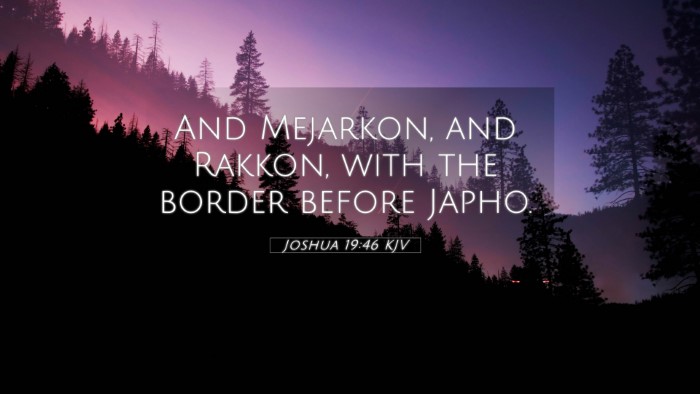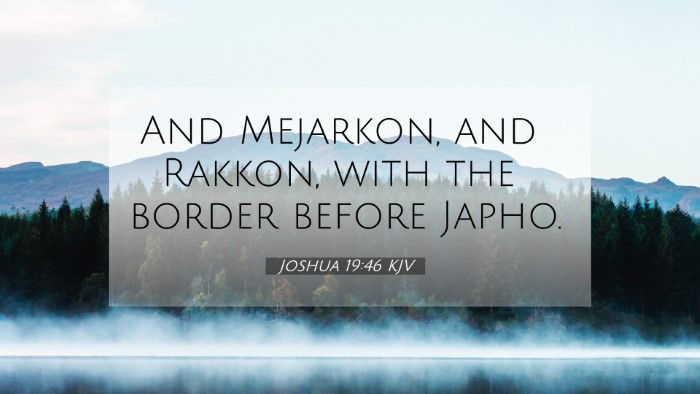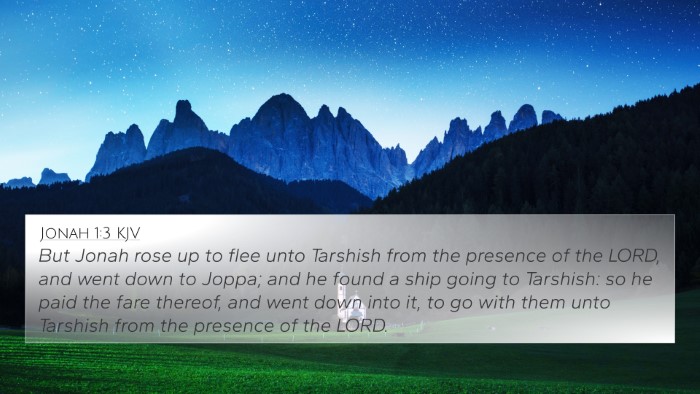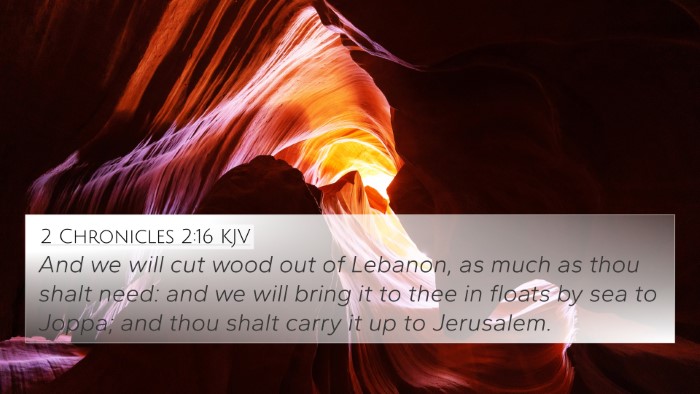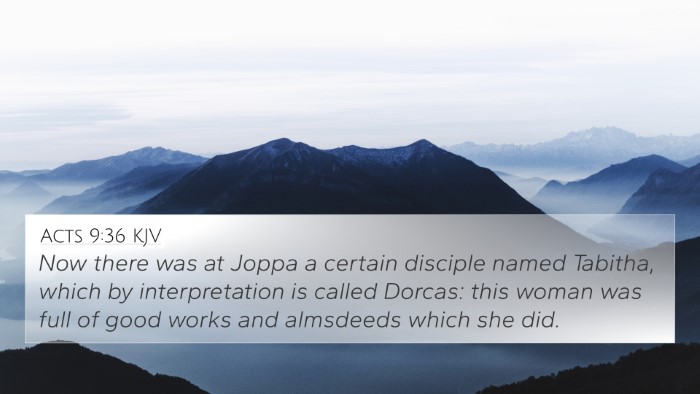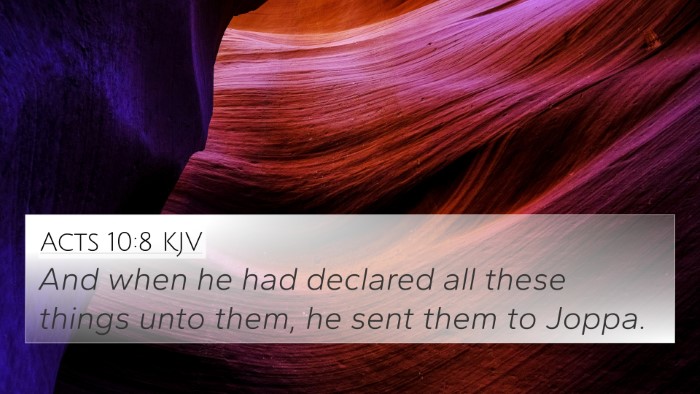Meaning and Interpretation of Joshua 19:46
Verse Context: Joshua 19:46 states, "And Me-jarkon, and Rakkon, with the border before Japho." This passage is found within the context of the allotment of land to the tribes of Israel, detailing the specific locations that encompassed their inheritance.
Summarized Insights
The verse emphasizes the careful and detailed delineation of territories assigned to the various tribes, underscoring the organizational efforts in the distribution of the Promised Land. The names mentioned, "Me-jarkon" and "Rakkon," along with "Japho," signify particular locations with inherent historical and geographical importance.
Commentary Insights
- Matthew Henry: Henry points out that the borders of territories are significant for understanding the heritage of Israel. He emphasizes the faithfulness of God in fulfilling His promise to the patriarchs about providing land to their descendants.
- Albert Barnes: Barnes notes the specificity in the naming of locations is crucial for biblical geography and heritage. He discusses how the inheritance was given to assuage the conflicts and disputes among tribes, thereby reflecting God's order.
- Adam Clarke: Clarke elaborates on the significance of Rakkon as a connection to the coastal regions, indicating the strategic and economic importance of the area. He interprets the borders here as indicative of God’s promise being brought to fruition in very tangible terms.
Cross-References and Connections
This verse can be cross-referenced with several other biblical texts that explore themes of inheritance, territory, and God's promises:
- Genesis 15:18: God's covenant with Abraham regarding the land.
- Joshua 13:7: The exhortation to divide the land among the tribes.
- Joshua 14:1-2: Distribution of the land to the Israelites.
- Numbers 34:2: Instructions for the borders of Canaan to be defined.
- Deuteronomy 34:4: Moses viewing the Promised Land from afar, fulfilling God's promise.
- Joshua 19:32-39: Further detailed allotment of land among the tribes.
- 1 Chronicles 6:54-81: Descendants of Aaron and the cities of refuge.
- Hebrews 11:9: Abraham living in the land of promise by faith.
- Psalm 78:55: God driving out nations before Israel and allowing them to take possession of the land.
- Revelation 21:1-2: The ultimate promise of God’s new creation and territory for His people.
Thematic Connections
The verse’s themes of land, promise, and divine order align with overarching biblical narratives and concepts such as:
- Promise of Inheritance: God's promise to provide a land for His people is a recurring theme throughout Scripture.
- Divine Providence: Each boundary is established by God’s will, illustrating His control over history.
- Covenantal Faithfulness: The detailing of these borders reflects God’s commitment to His covenant with Israel.
- Community and Heritage: The allocation of land helps to establish identity and belonging among the tribes of Israel.
Cross-Referencing Techniques
To fully grasp the significance of this verse and its connections, one can utilize the following tools and methods:
- Bible Concordance: Use a Bible concordance to find similar terms and themes.
- Bible Cross-Reference Guide: Utilize cross-reference guides to draw parallels between verses.
- Study Bibles: Many study Bibles offer built-in cross-referencing systems.
- Online Tools: Numerous websites provide interactive cross-referencing tools for deeper study.
- Group Bible Study: Engaging in discussions with others can unveil connections not previously considered.
Conclusion
The careful mapping of territories seen in Joshua 19:46 serves not merely as an account of land distribution but encapsulates the profound themes of divine promise, historical fidelity, and the identity of the Israelite community. By utilizing biblical cross-references and commentary insights, one can gain a richer understanding of God's enduring commitments to His people throughout Scripture.

